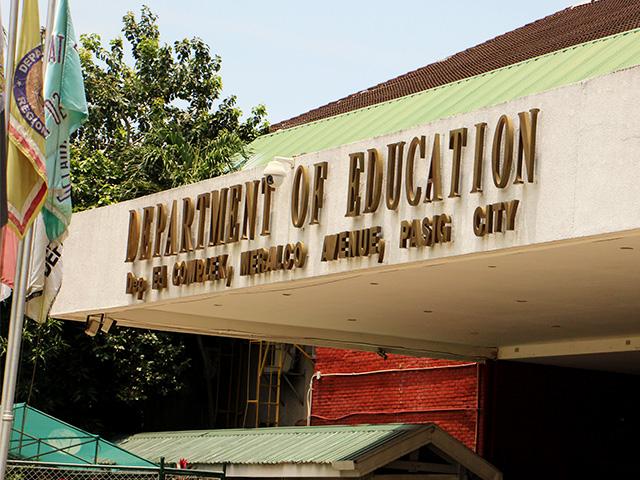DepEd opposes foreign control, administration of schools via Cha-cha
By GISELLE OMBAY, GMA Integrated News Published March 4, 2024 12:53pm The Department of Education (DepEd) on Monday expressed strong objection to the proposed amendments to the 1987 Constitution, particularly the allowing of full control and administration of basic education institutions in the Philippines to foreign entities. In a hearing of the House Committee of […]


By GISELLE OMBAY, GMA Integrated News
The Department of Education (DepEd) on Monday expressed strong objection to the proposed amendments to the 1987 Constitution, particularly the allowing of full control and administration of basic education institutions in the Philippines to foreign entities.
In a hearing of the House Committee of the Whole, DepEd Undersecretary Omar Romero said the amendments sought by Congress to Paragraph 2, Section 4, Article 14 of the Constitution have “far-reaching consequences and serious implications” to DepEd’s mandate and the exercise of its functions.
“The phrase ‘unless otherwise provided by law’ and its underlying rationale could potentially serve as a gateway to expand the scope of control and administration over educational institutions not solely by citizens of the Philippines but by other entities as well. In this light, the scope and limits of control and administration are put into question, including processes defining who, what, and how education shall be administered,” he said.
“The most basic question is: Will it allow foreign entities to teach? For this, the Department respectfully and strongly objects to the amendment,” he added.
Romero also raised fears that expanding the scope and administration of schools to foreign entities may affect DepEd’s programs and commitments, specifically the implementation of the new basic education curriculum.
“It is essential that the Philippine curriculum is exclusively implemented by Filipino citizens. This ensures alignment with the specific needs and context of the country,” he said.
DepEd, under the leadership of Vice President Sara Duterte, launched the new Matatag Kindergarten to Grade 10 (K-10) curriculum of the K-12 program in August 2023.
One salient feature of this recalibrated curriculum is the introduction of a new learning competency called “Makabansa,” which aims to mold students to be patriotic and have awareness and pride of their identities and of the country’s history, arts, and culture.
Romero, citing Article 14 Section 3 of the Constitution, said that all educational institutions shall inculcate patriotism and nationalism.
“Having foreign entities control and administer basic education in the Philippines may run contrary to this undertaking. This begs the question: How can foreign entities who are not citizens of the Philippines and therefore may lack first-hand experience with Filipino culture and values effectively impart a sense of patriotism and nationalism to learners?” he asked.
“Consequently, this may result in the possible dilution of the fundamental aspects of Filipino identity, cultures, and values to be taught and worse, endanger national security.”
The DepEd official also said that the removal of the third paragraph on the limits on the number of foreign nationals studying in an educational institution and the prohibition on establishment of educational institutions solely for foreigners “poses great risks on national security due to the lack of provisions for proper supervision and control over aliens” in the Philippines.
“This significantly diminishes the Department’s oversight of school supervision and management, including but not limited to curriculum offerings, roster of faculty, policies, programs, and matriculation. This susceptibility to external and foreign influence raises concerns regarding national security as it may expose these educational institutions to infiltration and compromise,” he continued.
The House of Representatives is currently deliberating Resolution of Both Houses No. 7 (RBH 7), which seeks to amend the Constitution by lifting the 40% limit on foreign ownership of vital industries, including public utilities and education.
Different view
Meanwhile, Commission on Higher Education (CHED) chairman Prospero de Vera III expressed a different view, saying CHED is amenable to the proposed amendment that will open up control and administration of higher educational institutions to foreign nationals.
“What we have observed in the other ASEAN countries over the past years is that opening up ownership and control of the educational institutions in higher education has made them more competitive in their internationalization efforts. The Philippines is one of the very few countries in the region that has restrictions on foreign ownership and participation in higher education,” he said.
De Vera said that some countries like Malaysia and Singapore not only amended their laws to allow foreign companies to participate in their higher education structure, but also gave incentives to encourage foreign schools to set up and participate in their higher education. —KBK, GMA Integrated News














